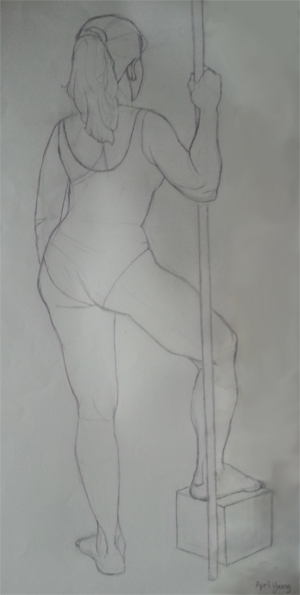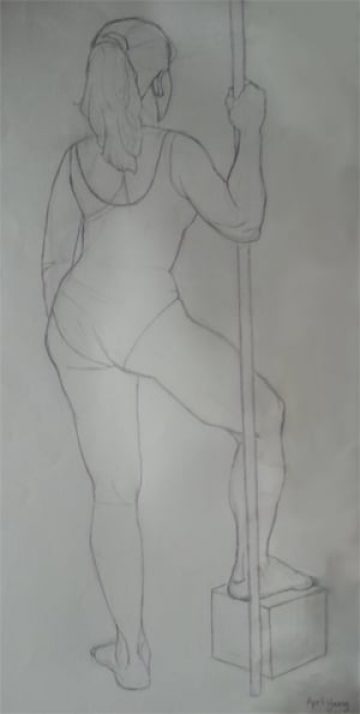
“Do you know why you’re so good at drawing this model?” asked my figure drawing 101 professor. “Because she looks like you.”
The model was hired from the student body of my junior college. She was a petite, White, eighteen-year-old, like me.
Unconsciously drawing yourself is common among art students. They will painstakingly study the unique person posed directly in front of them, in plain sight, and then proceed to draw exactly what they see–themselves. And this happens all the time! It is perfectly normal.
This perspective problem can happen in other situations besides sketching. Instead of seeing others’ concerns, challenges, hopes and desires, we project our own onto them, oblivious to the diversity around us.
The golden rule has fallen out of favor with some diversity awareness advocates because “Do unto others as you would have them do unto you” works only if the other party actually does want the same thing you do. They promote the platinum rule: “Do unto others as they would have done unto them.” In other words, don’t give other people what you would want. Give them what they want!
While recognizing the validity of this point, I still prefer the golden rule, and not just because Jesus came up with it. The problem with the platinum rule is that it can be hard to apply. How can we know what the other party wants? Are we responding to them or to stereotypes about them?
Attempts at implementing the platinum rule can go awry: “Let’s have the ladies watch the kids and make breakfast every morning while we are out golfing! I wouldn’t want to do that but women love to nurture!”
Applying the golden rule in this scenario would certainly work out better for the ladies. Sometimes, we look at others and see ourselves. Other times, we look at others and see what we have been taught to see.
I think the golden rule is likely to yield a good effect in most situations, simply because humankind has more in common than we do differences—but not always, because we do have some differences, and those differences don’t always align with the stereotypes. That is why we must constantly ask others what they want and why we must be surrounded by people who broaden our perspective. That is why organizations are at risk when their leadership is composed entirely of people who are like each other, lacking the diversity of those they intend to serve.







4 Responses
Nice post, April! That’s the perfect kicker of a conclusion in your last line.
What Ziff said.
Recognizing my own blind spots is something I’ve been thinking about lately, and I totally agree that being around people who are unlike us is a good way to help uncover them.
I’ve wrestled with the implications of this platitude a lot over the years. Such a fresh take. I’m so glad you shared your insights.
[…] Platinum Rule AND What We See Following the Platinum Rule and/or the Golden Rule while […]